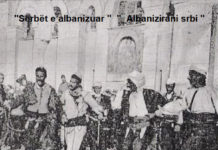The panel discussion “Demokracia nuk pret” is both timely and relevant as Albania finds itself at another critical juncture in its post-communist transition. This program is being held in the immediate aftermath of the issuance of the 2018 Freedom House Report on Albania and the 2018 European Commission Progress Report on Albania. The observations and conclusions reported in these documents have aroused both positive and negative reactions from the various segments of the Albanian political elite as well the country’s extensive commentariat.
With the exception of the generally positive reception of the EC recommendation that the European Union begin accession negotiations with Albania, the responses to both these reports have been largely colored by the partisan and ideological perspectives of their authors. Given the highly charged and polarized Albanian political environment in which the discussions of these recent evaluations of the status of the country’s transition have occurred, today’s program provides a valuable opportunity for a more detached and sober analysis of the multi-faceted aspects of Albania’s transition and the challenges the country must overcome to succeed in its quest for political democracy, a free market economy, greater socio-economic equality, the rule of law, human rights and the mitigation of crime and corruption.
The realization of this agenda may prove to be an even more daunting challenge than in the past, given the growth of political polarization in mature democracies such as the United States and several countries in Western Europe and the emergence of authoritarian nationalist parties and regimes in Central and Eastern Europe. This latter development has been well received by some elements of the Albanian political right. And, in Albania, the implementation of the democratic agenda is further complicated by what appears to be the ingrained undemocratic instincts of key members of the leaderships of the major political parties. Additionally, there appears to be a deepening resentment on the part of some Albanians to the ongoing role and influence of external actors and interests in the affairs of their homeland.
The panelists for this program are uniquely qualified to provide informed and authoritative perspectives regarding Albania’s transition experiences and future prospects. All have served with distinction as members of the Albanian Service of the Voice of America. Frank Shkreli is the retired director of the VOA’s Eurasian Service and Elez Biberaj serves in that capacity today. Idriz Lamaj was a long time VOA broadcast journalist and is the author of a number of studies on Albanian affairs. The panelists have followed, reported on and participated in major events in the evolution of post-communist Albania from the collapse of the communist regime to the present.
All have published books, articles and have made numerous presentations regarding Albania’s history, politics, society and international relations that have been well received. Indeed, the first volume of Frank’s Demokracia nuk pret, comprises the initial installment of his approximately 1,000 articles on various aspects of Albanian life published in the Albanian press in the homeland and the diaspora. And this book provides both the inspiration and title for today’s program.
My greetings to the panelists and conference participants. And, my best wishes and congratulations to those VATRA officers and members involved in the planning and hosting of this event.












